Related Research Articles

Espionage, spying, or intelligence gathering is the act of obtaining secret or confidential information (intelligence). A person who commits espionage is called an espionage agent or spy. Any individual or spy ring, in the service of a government, company, criminal organization, or independent operation, can commit espionage. The practice is clandestine, as it is by definition unwelcome. In some circumstances, it may be a legal tool of law enforcement and in others, it may be illegal and punishable by law.
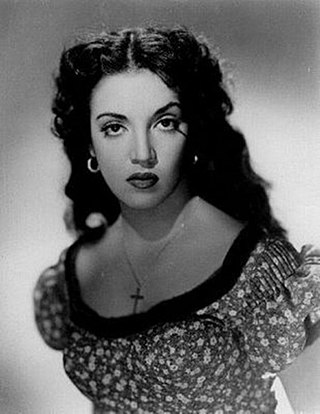
María Cristina Estela Marcela Jurado García, known professionally as Katy Jurado, was a Mexican actress. Jurado began her acting career in Mexico during the Golden Age of Mexican cinema. In 1951, she was recruited by American filmmakers in Mexico and began her Hollywood career during the Golden Age of Hollywood. She acted in popular Western films of the 1950s and 1960s. Her talent for playing a variety of characters helped pave the way for Mexican actresses in American cinema. She was the first Latin American actress nominated for an Oscar, as Best Supporting Actress for her work in Broken Lance (1954), and was the first to win a Golden Globe Award, for her performance in High Noon (1952).
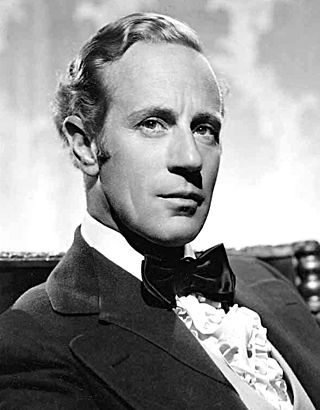
Leslie Howard Steiner was an English actor, director, producer and writer. He wrote many stories and articles for The New York Times, The New Yorker, and Vanity Fair and was one of the biggest box-office draws and movie idols of the 1930s.

Get Smart is an American comedy television series parodying the secret agent genre that had become widely popular in the first half of the 1960s with the release of the James Bond films. It was created by Mel Brooks and Buck Henry, and had its television premiere on NBC on September 18, 1965. It stars Don Adams as agent Maxwell Smart, Barbara Feldon as Agent 99, and Edward Platt as The Chief. Henry said that they created the show at the request of Daniel Melnick to capitalize on James Bond and Inspector Clouseau, "the two biggest things in the entertainment world today". Brooks described it as "an insane combination of James Bond and Mel Brooks comedy".
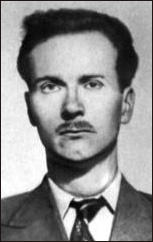
John Cairncross was a British civil servant who became an intelligence officer and spy during the Second World War. As a Soviet double agent, he passed to the Soviet Union the raw Tunny decryptions that influenced the Battle of Kursk. He was alleged to be the fifth member of the Cambridge Five. He was also notable as a translator, literary scholar and writer of non-fiction.

Camp X was the unofficial name of the secret Special Training School No. 103, a Second World War British paramilitary installation for training covert agents in the methods required for success in clandestine operations. It was located on the northwestern shore of Lake Ontario between Whitby and Oshawa in Ontario, Canada. The area is known today as Intrepid Park, after the code name for Sir William Stephenson, Director of British Security Co-ordination (BSC), who established the program to create the training facility.

Rudolf Ivanovich Abel, real name William August Fisher, was a Soviet intelligence officer. He adopted his alias when arrested on charges of conspiracy by the FBI in 1957.

The Directorate-General for External Security is France's foreign intelligence agency, equivalent to the British MI6 and the American CIA, established on 2 April 1982. The DGSE safeguards French national security through intelligence gathering and conducting paramilitary and counterintelligence operations abroad, as well as economic espionage. It is headquartered in the 20th arrondissement of Paris.
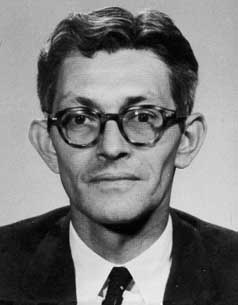
James Jesus Angleton was an American intelligence operative who served as chief of counterintelligence for the Central Intelligence Agency from 1954 to 1975. According to Director of Central Intelligence Richard Helms, Angleton was "recognized as the dominant counterintelligence figure in the non-communist world".

Silvia Pinal Hidalgo is a Mexican actress. She began her career in the theater, venturing into cinema in 1949. She is one of Mexico's greatest female stars, one of the last surviving major stars from the Golden Age of Mexican cinema and part of the Golden Age of Hollywood for her film Shark! (1969). Her work in film and popularity in her native country led Pinal to work in Europe. Pinal achieved international recognition by starring in a famous film trilogy directed by Luis Buñuel: Viridiana (1961), El ángel exterminador (1962) and Simón del Desierto (1965).
As early as the 1920s, the Soviet Union, through its GRU, OGPU, NKVD, and KGB intelligence agencies, used Russian and foreign-born nationals, as well as Communists of American origin, to perform espionage activities in the United States, forming various spy rings. Particularly during the 1940s, some of these espionage networks had contact with various U.S. government agencies. These Soviet espionage networks illegally transmitted confidential information to Moscow, such as information on the development of the atomic bomb. Soviet spies also participated in propaganda and disinformation operations, known as active measures, and attempted to sabotage diplomatic relationships between the U.S. and its allies.
The Federal Bureau of Investigation (FBI) has been a staple of American popular culture since its christening in 1935. That year also marked the beginning of the popular "G-Man" phenomenon that helped establish the Bureau's image, beginning with the aptly titled James Cagney movie, G Men. Although the detective novel and other police-related entertainment had long enthralled audiences, the FBI itself can take some of the credit for its media prominence. J. Edgar Hoover, the Bureau's "patriarch", took an active interest to ensure that it was not only well represented in the media, but also that the FBI was depicted in a heroic, positive light and that the message, "crime doesn't pay", was blatantly conveyed to audiences. The context, naturally, has changed profoundly since the 1930s "war on crime", and especially so since Hoover's death in 1972.

The Scarlet Coat is a 1955 American historical drama and swashbuckler in Eastmancolor and CinemaScope released by Metro-Goldwyn-Mayer, produced by Nicholas Nayfack, directed by John Sturges. It stars Cornel Wilde, Michael Wilding, George Sanders, and Anne Francis. The film is based upon the events in the American Revolution in which Benedict Arnold offered to surrender the fort at West Point to the British in exchange for money.
Dmitri Aleksandrovich Bystrolyotov was a Soviet Russian intelligence officer, a polyglot, a writer and a Gulag prisoner. As a Soviet undercover operative, Bystrolyotov worked in Western Europe between World War I and II, recruiting and controlling several agents in Great Britain, France, Germany, and Italy. His greatest achievement was breaking into the British Foreign Office files years before Kim Philby, as well as procuring diplomatic ciphers of many of European countries. In the 1930s, he fell victim of Joseph Stalin's purges. Arrested by the NKVD on drummed up charges, he was tortured severely. While serving his term, he spent over 16 years in various Gulag camps. There, at great risk to himself, he wrote and smuggled his memoirs to the outside world, which were an indictment of the Communist Party of the Soviet Union's crimes against humanity.
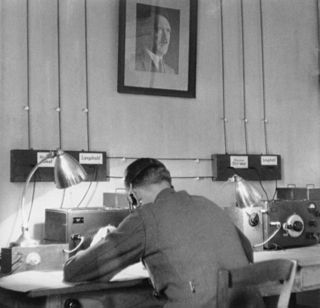
The Abwehr was the German military-intelligence service for the Reichswehr and the Wehrmacht from 1920 to 1945. Although the 1919 Treaty of Versailles prohibited the Weimar Republic from establishing an intelligence organization of their own, they formed an espionage group in 1920 within the Ministry of Defence, calling it the Abwehr. The initial purpose of the Abwehr was defence against foreign espionage: an organizational role which later evolved considerably. Under General Kurt von Schleicher the individual military services' intelligence units were combined and, in 1929, centralized under Schleicher's Ministeramt within the Ministry of Defence, forming the foundation for the more commonly understood manifestation of the Abwehr.

James Tont operazione U.N.O. or Operation Goldsinger is a 1965 French and Italian international co-production Eurospy film spoof based on James Bond's Goldfinger. Co-written and co-directed by Bruno Corbucci and Giovanni Grimaldi, the film stars Lando Buzzanca as James Tont Agent 007 1⁄2 a parody of James Bond and Loris Gizzi as Erik Goldsinger, a parody of Auric Goldfinger. It was followed by James Tont operazione D.U.E..

Spying, as well as other intelligence assessment, has existed since ancient history. In the 1980s scholars characterized foreign intelligence as "the missing dimension" of historical scholarship." Since then a largely popular and scholarly literature has emerged. Special attention has been paid to World War II, as well as the Cold War era (1947–1989) that was a favorite for novelists and filmmakers.

Marvel's Agent Carter, or simply Agent Carter, is an American television series created by Christopher Markus & Stephen McFeely for ABC, based on the Marvel Comics character Peggy Carter following her roles in the 2011 film Captain America: The First Avenger and the 2013 Marvel One-Shot short film of Agent Carter. It is set in the Marvel Cinematic Universe (MCU) and shares continuity with the franchise's films and other television series. The series was produced by ABC Studios, Marvel Television, and Fazekas & Butters, with Tara Butters, Michele Fazekas, and Chris Dingess serving as showrunners.
A Tailored Gentleman is a 1954 Mexican comedy film, directed by Miguel M. Delgado and starring Cantinflas, Martha Valdés and Ángel Garasa. The film's art direction was by Gunther Gerszo.